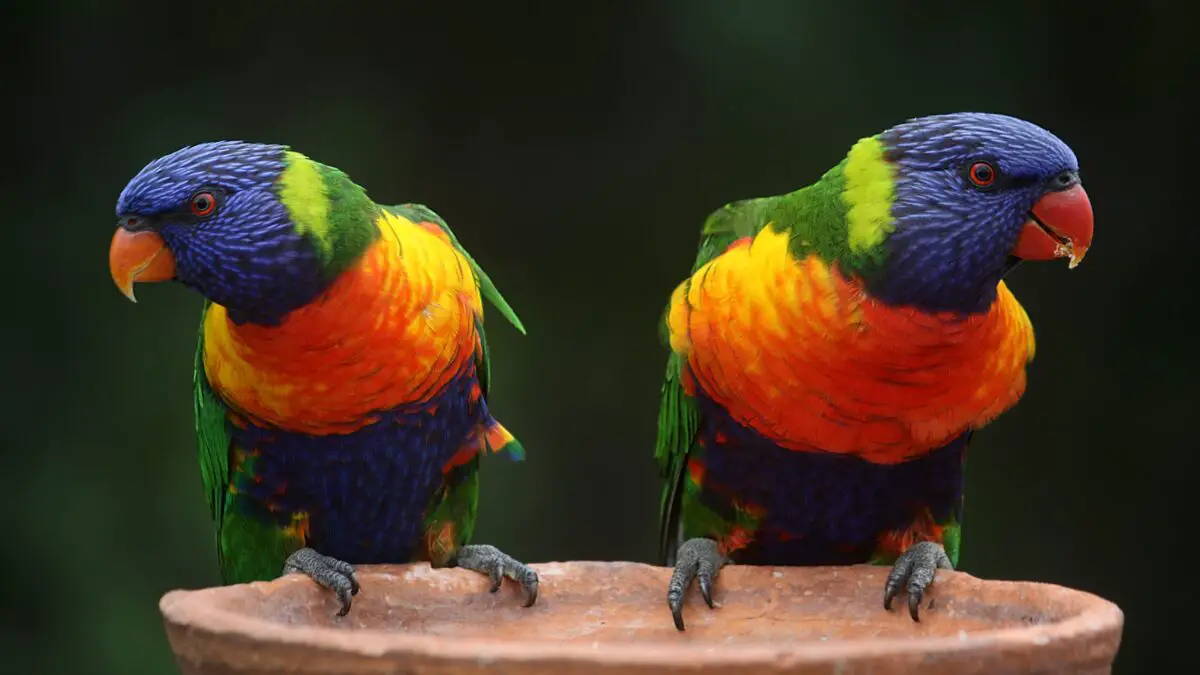Animals and English idioms go hand in hand. In fact, there are so many bird idioms in English, we thought they deserved their very own list! You’ll even find a few proverbs and similes to ensure you have the most common bird phrases ready to use and understand.
And don’t forget, there are plenty of other idioms related to animals for you to explore.

Bird idioms
A bird in the hand is worth two in the bush
This list of bird idioms actually starts with a nature-inspired proverb. With that said, it’s very commonly used, so is important to understand. The saying a bird in the hand is worth two in the bush is telling you to be happy with what you have, instead of chasing after things that are uncertain.
“To be honest, a bird in the hand is worth two in the bush, so perhaps you should stick with your job a while longer.”
Under your wing
This is one of the more heartwarming bird idioms, as when you take someone under your wing you are offering to protect them and take care of them.
“I didn’t know anyone when we moved to this town but Barbara took me under her wing and introduced me to all her friends.”
It could also apply to a school or business setting, where one person takes care of a new student or employee until they settle in.
“It was wonderful to see James take the new student under his wing.”
An albatross around your neck
Taken from the wonderful yet tragic poem The Rime of the Ancient Mariner, an albatross around your neck means you have a big burden that particularly torments you.
“I feel bad for her; that one mistake last year has been like an albatross around her neck.”
Bird’s eye view
This is probably one of the easier idioms about birds to interpret. As birds normally fly above us, their viewpoint is from a great height, looking down at the world below them. A bird’s eye view is just that: A view from a height that allows you to see a large area below.
“The hike to the top of the mountain is worth it for the bird’s eye view.”
Put a cat among the pigeons
For a moment, imagine the chaos and trouble you would cause if you actually put a cat among the pigeons. Now, you can understand why this saying is used to describe doing something that upsets people, makes them angry, or causes trouble.
“When she asked that question she really put a cat among the pigeons.”
This one also features on our list of cat-related idioms.
A little bird(ie) told me
When someone begins by saying ‘A little bird told me…’, it means they are about to share a secret, but they don’t want to divulge who told them about it. This is quite an informal bird saying, most often used between friends.
“A little birdie told me that you’ll be moving house soon.”
As the crow flies
Here’s a good travel idiom that is also related to birds. We use this one to describe distances. As the crow flies is a way of stating that the given distance is direct from point A to point B in a straight line, flying over buildings, rivers, and other objects that normally would need to be negotiated.
“Well, as the crow flies, it’s about 2 miles. But due to the river you have to go around, it’s more like 10 miles!”
If you are planning a journey, the distance as the crow flies is usually much shorter than the actual distance you will need to travel.
Birdbrain
Not all of these bird idioms are kind or inspirational. Calling someone a birdbrain is saying that they are foolish, scatterbrained, forgetful, or unintelligent. Birds have relatively small brains and so have much less cognitive capacity than humans.
“I can’t believe you forgot the cake – you are such a birdbrain sometimes.”
You may also use the adjective birdbrained to describe this type of person.
Eagle eyes / Eagle-eyed
Although this saying may sound similar to other bird idioms, like ‘bird’s eye view’, it has a different meaning. To be eagle-eyed is to watch something carefully, notice small details, and have great power of observation.
“She’s a great proofreader. Her eagle eyes never seem to miss a trick!”
“That eagle-eyed teacher never lets you get away with anything.”
Chicken out
Here’s one of the very commonly used bird idioms. In fact, it’s so popular that people may simply call you a ‘chicken’ as an insult. If you are too scared to do something so you decide to back out or cancel your plans, you are said to have chickened out.
“I can’t believe Sam chickened out and didn’t ride the rollercoaster with us.”
“Don’t say you’re chickening out of the fancy dress night?! I’ve already bought my costume!”
‘Bottle it’ is another phrase that means the same thing, but this is more of a British saying.
Eat like a bird
Most birds are small so it stands to reason that they only eat small amounts. If someone says you eat like a bird, they think you only eat small amounts of food, whether it’s a tiny portion at mealtimes or just grazing on things throughout the day.
“Honestly, my grandchild eats like a bird most of the time.”
Don’t confuse this with its opposite saying – to eat like a horse. This term means to eat a great deal.

Idioms about birds
Like a duck to water
Here’s the first of our duck-related idioms about birds and their love of water. Simply put, ducks easily and quickly learn how to swim. So when someone learns or adapts to something with ease, they take to it like a duck to water.
“He started driving lessons yesterday and took to it like a duck to water.”
Like water off a duck’s back
Not everyone likes water, but ducks most certainly do. It just doesn’t seem to bother them whether they are swimming in it or it’s raining. Using this logic, when someone doesn’t react negatively to a harmful, mean comment or upsetting situation, we can compare it to water off a duck’s back. They just don’t let it bother them.
“Marget was making mean comments about my dress, but honestly, it was like water off a duck’s back.”
Believe it or not, there are a large number of water-related idioms to use in everyday conversation.
The early bird catches the worm
Lots of these bird idioms can be used in relation to work, studying, or school, and none more so than the phrase the early bird catches the worm. This expression suggests that by doing something before others, you will be at an advantage. This may mean waking up early, putting in extra work, or starting a project before others.
“Mark starts work 30 minutes before us as he thinks the early bird catches the worm.”
Discover some more idioms about working hard to help you with business English.
Fly the coop
There comes a time when a bird is old enough to leave the nest or coop and set out by itself. In an idiomatic sense, then, flying the coop means leaving or escaping a situation that you’re not enjoying or you have outgrown, in order to gain more freedom or move on to something new.
This phrase is often used to describe moving out of your family home (the home you grew up in), but there are many other applications.
“At the age of 23 she’s finally ready to fly the coop and get her own place.”
“This lecture is boring me to tears. Shall we fly the coop at lunchtime and go to the mall instead?”
Birds of a feather flock together
The expression birds of a feather flock together is an observation that people who share a common interest (whether good or bad) often end up forming a group, friendship, relationship, or community together.
“I see Paul and Jez are hanging out together now they found out they both like fantasy football – I guess birds of a feather really do flock together.”
We have another page with more idioms about friendship like this one.
Kill two birds with one stone
To kill two birds with one stone is a good bird idiom to know if you like to multitask or work efficiently. It means to achieve or accomplish two things with one action, or to solve two problems with one solution.
“I like to be efficient and kill two birds with one stone – I clean the house and work up a sweat at the same time.”
Rest assured, no birds are being harmed when you use this phrase!
Ugly duckling
Taken from the story by Hans Christian Andersen of the same name, an ugly duckling is someone (normally a child) who grows in confidence, talent, or looks as they mature. It’s an example of one of the less complimentary beauty idioms we use in English.
“She was quite the ugly duckling when she was younger, but look at her now.”
You can read the story for yourself to understand the full meaning of this saying.
What’s good for the goose is good for the gander
First things first, it’s worth knowing that a male goose is called a gander and a female can just be referred to as a goose. So the saying what’s good for the goose is good for the gander could be taken to mean what’s suitable for a female is also suitable for a male.
With that said, most people apply it more generally to mean that what is acceptable or beneficial for one person should also be available to others. Basically, we should treat people in the same way and give equal opportunities.
“If the accounts team gets a bonus, so should we. What’s good for the goose is good for the gander.”
You may hear this shortened to just what’s good for the goose… with the rest of the expression left unspoken, but still implied.
Wild-goose chase
A wild-goose chase is a search for something that is either very difficult to find, or just doesn’t exist at all. The search is often chaotic and lengthy, but ends up being a waste of time. Some, they are on a search that is a waste of time as it is unattainable.
“Trying to find the wedding dress I saw in the magazine has been a bit of a wild goose chase.”
Interestingly, this is one example of an idiom from Shakespeare’s works.
You may read this saying in a detective book or hear it in a mystery movie, especially in cases where one person has deliberately sent another on this type of hopeless pursuit.
Night owl
Some idioms about birds are easy to figure out. As owls are nocturnal, meaning they wake during the night, someone who is described as a night owl is normally active late in the evening or during the night. Here are some more night idioms to describe this type of person or activity.
“I’m a bit of a night owl so I prefer to study late.”
On the other hand, someone who likes to wake up early in the morning can be described as an early bird.
Bird similes
There are so many similes featuring birds that we’ve kept them for the end! Can you relate to the characteristics that are mentioned here?
Proud as a peacock
When you are as proud as a peacock, you are pleased with something you have achieved. However, it can also be said as an insult to describe someone vain or self-centered.
“He was as proud as a peacock with his new flashy car.”
Happy as a lark
We could describe someone as happy as a lark if they are very happy and carefree. Why a lark? Listen to a lark’s birdsong early in the morning. It is said to be a bright, cheerful, and happy tune.
“He’s been as happy as a lark all morning.”
You can find some more happiness idioms here.
Graceful as a swan
There are a few similes on this list of bird idioms, but knowing their meaning is important. To be as graceful as a swan means you are very agile, move with elegance, or have smooth motions.
“During her dance exam she was as graceful as a swan.”
This comparison is taken from how nicely a swan glides through the water.
Free as a bird
To be as free as a bird is a wonderful thing. It means you have the luxury of being worry-free, having no troubles or commitments. Take a look at our list of freedom idioms for other examples like this.
“I’m as free as a bird tonight so I’ll pop by later.”
Dead as a dodo
Sadly, dodos are now extinct. So this saying, as dead as a dodo, means that something is no longer working, popular, needed, or interesting. It can also be used when something (or someone) is out of energy.
“Well, the car battery is as dead as a dodo.”
“I don’t think I’ll be going out tonight; I feel as dead as a dodo.”
Scarce as a hen’s tooth
See if you can work out the meaning of this bird idiom for yourself. As hens have no teeth, you won’t be able to find them! Therefore, something as scarce as a hen’s tooth (or as hens’ teeth) is something that is exceptionally rare.
“Gosh, I’m trying to book a table for Valentine’s Day but it turns out they are about as scarce as hens’ teeth.”
Sick as a parrot
Don’t be fooled by this simile. Although over time some people may have come to use it to describe being unwell or vomiting, the original meaning is quite different. To be as sick as a parrot is actually to be very disappointed by something and is normally used in a humorous way.
“Poor lad was a sick as a parrot when England missed the last penalty kick yesterday.”
Who knew there were so many bird idioms to learn? Have you learned any new ones today? Don’t chicken out when it comes to leaving a comment – let us know what you think.


